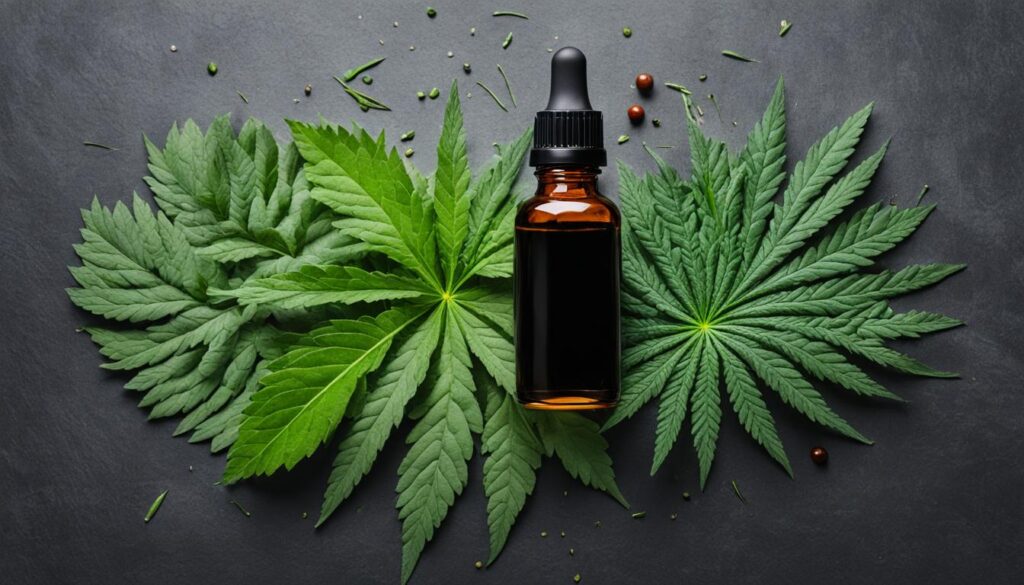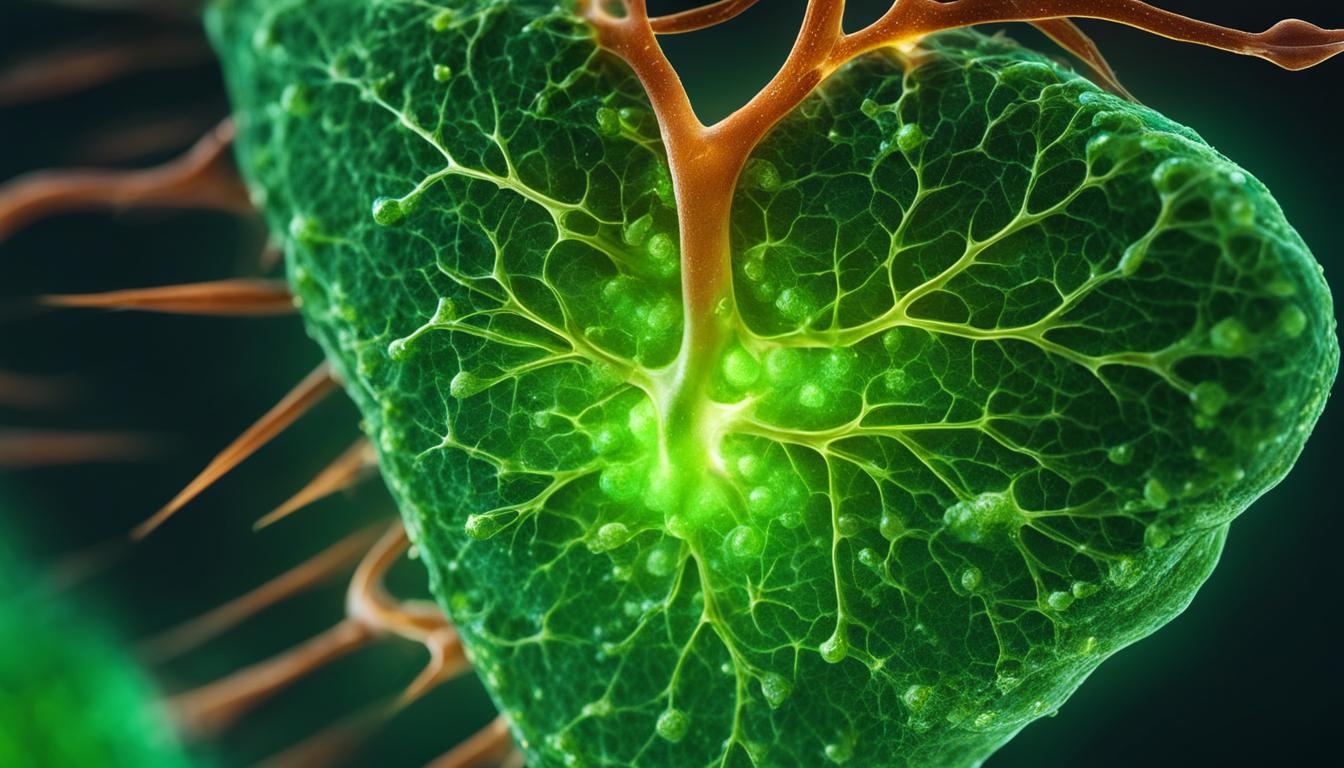CBD Oil Liver Effects: Safe or Risky?
The ubiquitous surge in CBD oil as a sought-after wellness product has ignited a surge of debate centered around its safety, particularly regarding the liver. Distilled from the cannabis plant, CBD oil is increasingly famed for its broad spectrum of health benefits, from soothing anxiety to managing pain. With the broadening appeal comes an acute focus on its influence on liver health—one of the body's crucial detoxifying powerhouses. Questions around cbd oil side effects on liver, potential for liver damage from cbd oil, and the implications of cbd oil toxicity to liver remain top considerations for consumers and healthcare practitioners alike.
As the liver undertakes the pivotal role of metabolizing substances, understanding how CBD oil interacts with this organ is of paramount importance. While the research unfolds, delineating the nuances between the potential hepatic benefits and risks associated with CBD oil use is vital for informed decision-making.
Key Takeaways
- Assessing the potential side effects of CBD oil on liver health is essential due to its growing use.
- CBD oil is metabolized by the liver, raising questions about its safety and long-term effects.
- Research is ongoing to clarify the extent of cbd oil toxicity to liver.
- The FDA highlights the possibility of liver damage from cbd oil, particularly in high doses.
- Understanding the proper use and dosage of CBD oil can minimize potential risks to liver health.
Understanding Cannabidiol (CBD) and Its Growing Popularity
The landscape of wellness has recently expanded to include a compound known for its therapeutic promise—cannabidiol, more commonly referred to as CBD. Extracted from the cannabis plant, CBD has rapidly blossomed into a cornerstone of the burgeoning wellness industry. Amidst discussions concerning health, particularly liver health and CBD oil, lies a complex narrative that weaves together the non-psychoactive nature of CBD, its purported health benefits, and an evolving legal framework that shapes its accessibility.
What is CBD?
As one of many cannabinoids found in the cannabis plant, CBD stands out due to its lack of psychoactive effects—a sharp contrast to its more renowned counterpart, THC. CBD's ascent to the spotlight is grounded in research that delves into its myriad potential health benefits, ranging from treating anxiety to managing chronic pain. With a focus on cbd oil and liver function, the scientific community is continually appraising the intricate ways CBD interacts with the body's endocannabinoid system, striving to understand its benefits and safety profile.
The Rise of CBD Products and Their Legal Status
In the wave of changing perceptions towards cannabis-related products, the legal standing of CBD underwent a significant transformation with the passage of the 2018 Farm Bill. This legislative act federally legalized hemp-derived CBD products containing less than 0.3% THC, a move that catalyzed the proliferation of CBD across a spectrum of consumer goods. Nevertheless, the narrative of CBD's legality is not uniformly scripted, as state laws render complex tapestries of regulation, with a clear demarcation: products harboring over 0.3% THC remain federally illegal. Moreover, amidst this growing popularity, the FDA continues to underscore the need for caution, having not granted approval to nonprescription CBD products and raising flags about potential cbd oil hepatotoxicity. Therefore, consumers tread a path where advocacy for wellness meets the need for diligent awareness of legal conditions and implications for liver health and cbd oil.
As we acknowledge the crescendo of CBD's acclaim, both in consumer circles and within scientific research, the journey to fully comprehend its impact—be it in relation to holistic wellness or specific concerns such as cbd oil and liver function—remains a road actively being charted. The discerning consumer and health advocate must navigate the available information with a critical eye, balancing the dynamic interplay of promise, proof, and prudence.
CBD Oil and Liver Function: An Overview
The liver's profound capacity for processing a myriad of substances makes it a focal point in the discussion of cbd oil and liver health. A beacon of detoxification, this essential organ holds the pivotal responsibility of metabolizing compounds such as cannabidiol (CBD), a function attracting growing scrutiny due to potential implications for liver health.
The Liver’s Role in Metabolizing CBD
Central to appreciating the relationship between CBD oil and the liver is an understanding of how the liver processes chemical substances. As CBD oil enters the systemic circulation, the liver's enzymatic pathways engage in metabolizing the compounds, breaking them down into forms that can be more easily utilized or excreted by the body.
Digging deeper, the liver's cytochrome P450 enzymes are instrumental in this process. These enzymes play a crucial role in drug metabolism, including the breakdown of cannabinoids like CBD. Thus, the interaction of CBD with these enzymes is of substantial interest, primarily because of concerns about cbd oil and elevated liver enzymes.
How CBD May Affect Liver Health
The concern regarding cbd oil and liver damage stems from how CBD might potentially affect the liver's ability to metabolize other drugs. There is a compounding curiosity about whether long-term CBD use contributes to an increased risk of liver disease or exacerbates existing liver conditions.
Emerging research straddles a delicate line between caution and optimism. While some studies document an association of CBD with changes in liver enzyme levels, these findings often arise within the context of higher pharmaceutical-grade doses. For instance, medications like Epidiolex, a CBD oil-based medication approved by the FDA, have shown a favorable safety profile, albeit with notations of liver enzyme modifications in some patients.
| Study/Source | Findings on CBD and Liver Health | Dosage/Population | Relevance to Liver Enzymes |
|---|---|---|---|
| Food and Drug Administration (FDA) | Potential for liver damage at higher dosages | High-dose CBD (Epidiolex) | Increased liver enzymes observed |
| 2020 Research Review | Low risk of liver damage | High doses in pharmaceutical products | Lower risk at common dietary supplement doses |
| 2021 Study | Self-medication unlikely to affect liver function | Common dietary supplement doses | Liver function not significantly affected |
It's not just the dosage that matters but also the individual's overall health status, as well as concurrent use of other medications. The prevalence of cbd oil and liver disease discourse thus coalesces around the need to understand the compound's hepatic interactions deeply. While CBD as a supplement appears to showcase a lower risk of inducing serious liver damage, attentiveness to liver enzyme levels remains central for those exploring CBD oil's therapeutic potential.
The journey to elucidate the true extent of CBD's effect on the liver thus continues, with researchers keenly observing any long-term cbd oil and liver damage correlations. Stakeholders are encouraged to remain informed through conscientious analysis of unfolding research and through the lens of holistic liver health management.
Examining the Research: CBD Oil Side Effects on Liver
The burgeoning interest in the wellness potential of CBD oil brings with it an essential aspect of safety concerning the liver. With the liver acting as a crucial mediator in metabolizing substances, it's vital to scrutinize the connection between CBD oil use and liver health. This examination pivots on concerns such as cbd oil side effects on liver, cbd oil toxicity to liver, and indications of cbd oil hepatotoxicity.
As the Food and Drug Administration (FDA) shadows the progression in understanding CBD's safety profile, it particularly cautions about possible liver injury linked to its use. The link between cbd oil and elevated liver enzymes is a frequent endpoint in such investigations, suggesting potential hepatic strain or damage. While the clinical data emerges mostly from pharmaceutical contexts, the question of risk in over-the-counter CBD products draws a line for further inquiry.
Amidst the backdrop of caution, some studies hint at liver-related benefits attributable to CBD's usage, most notably its antioxidative and anti-inflammatory effects. These findings propose a potential advantage for the liver, especially in the context of post-operative recovery. However, the distinction between these potential benefits and the risks of liver toxicity remains a critical point of research.
Ultimately, while CBD is not linked to renal harm, it is the hepatic implications that take center stage; garnering significant attention from health professionals and consumers alike. The call for more comprehensive studies to understand cbd oil and liver damage with a focus on dosage, product quality, and individual health factors is irrefutable. This ongoing research will pave the way for clearer guidelines and safe usage of CBD oil in relation to liver function.
The multi-faceted nature of CBD's influence on liver enzymes necessitates a robust, evidence-based approach to understand the breadth of its effects. The quest to delineate the holistic picture of cbd oil hepatotoxicity is part of a greater mandate to explore and validate the therapeutic claims attributed to CBD. As research evolves, so too will our grasp of how to harmonize the benefits of CBD oil with liver health safety.
Interactions Between CBD Oil and Liver Enzymes
The evolving landscape of health and wellness has perpetuated a deep dive into the physiological impacts of natural supplements, particularly on liver functionality. Amidst various substances, CBD oil has come under scrutiny for its interactions with liver enzymes—a focal point for determining its safety profile. It's instrumental to discern how cannabidiol, or CBD, the non-intoxicating compound lauded for its multitude of health benefits, syncs or clashes with the liver's intricate enzyme system. Moreover, the burgeoning use of CBD oil accentuates the necessity to address concerns related to liver health and cbd oil, notably how increased CBD intake might influence liver enzymes and potentially interact with liver disease.
Impact on Drug Metabolism
Understanding the metabolic dance between CBD and the liver sheds light on potential repercussions for liver enzyme levels. As the liver's cytochrome P450 enzyme system metabolizes a wide range of pharmaceuticals, the introduction of CBD into this intricate interplay is of particular concern. Intriguingly, CBD may modulate the enzyme system responsible for drug processing, altering the effect and side effects seen with numerous medications. This lays the groundwork for the investigation into the connection between cbd oil and liver enzymes, as well as the broader implications for pharmacological efficacy and safety.
Potential for Elevated Liver Enzymes
Delving into the realm of cbd oil and liver disease, elevated liver enzymes have emerged as a potential flag-raising the frequency of interactions, especially among those using CBD in conjunction with medications known to impact liver health. High on the list of such medications is valproate, an anticonvulsant, and mood-stabilizing drug, which, in tandem with CBD, has manifested heightened liver enzyme levels in some individuals. This synergy warrants a nuanced understanding, particularly as it may pertain to signs of liver stress or damage. Here, the onus falls on distinguishing the effects of CBD at varying doses—those typical of pharmaceutical applications versus less potent doses often found in dietary supplements and other consumer products.
However, understanding these interactions requires a thorough analysis—an endeavor underscored by the intricate fabric of CBD's influence on liver enzymes and overall liver health and cbd oil considerations. Researchers continue to pursue this knowledge frontier, yielding insights that could redefine the guidelines for CBD oil use relative to liver wellness and disease management.
Investigating Liver Damage From CBD Oil Through Scientific Studies
In the ever-evolving narrative surrounding the health ramifications of CBD oil, recent scientific scrutiny has homed in on its effects on the liver. A surge of academic interest has emerged following signals of potential liver damage from cbd oil, prompting a more detailed forensic investigation into the nature of cbd oil and liver damage. Reliable scientific studies are now stepping into the spotlight, aiming to deconstruct the preconceptions and unpack the scientific veracity of these concerns.
FDA Findings on CBD
The Food and Drug Administration (FDA) has played a pivotal role by issuing cautionary statements on the possibility of liver damage from cbd oil. Their findings are based on clinical studies, particularly those conducted during the approval process for Epidiolex, which is an FDA-approved CBD-based treatment for certain forms of epilepsy. These studies revealed that high doses of CBD, especially when taken alongside other anti-seizure medications such as valproic acid, were linked to elevated liver enzyme levels—a harbinger of potential liver injury.
Clinical Trials and Liver Concerns
The evidenced liver concerns surfaced when patients subjected to high doses of CBD for seizure conditions demonstrated noticeable changes in liver enzymes. Although these events occurred in a context where dosages were significantly beyond what is commonly available over-the-counter, it propelled ongoing inquiries into how CBD oil could potentially propagate liver disease or exacerbate pre-existing liver conditions. It is this gamut of clinical trials that continue to illuminate the discussions pertaining to cbd oil and liver disease, shaping both public perception and medical guidelines.
The meticulous elaboration of empirical data is advancing our understanding of cbd oil and liver function, with emerging research embarking on the arduous task of verifying the assertions of hepatotoxicity linked to CBD oil. As such, this subject remains a fertile ground for scientific inquiry, burdened with the responsibility of discerning between anecdotal concerns and substantiated scientific outcomes.
Potential Benefits of CBD Oil for Liver Health
Amid concerns about cbd oil and liver disease, emerging research presents a flicker of optimism, suggesting possible liver health advantages associated with CBD oil. The focus on liver health and cbd oil is gaining momentum within scientific circles, aiming to surmise potential beneficial properties that could act protectively or therapeutically on the liver.
Antioxidative and Anti-inflammatory Properties
Some studies have showcased CBD oil's antioxidative and anti-inflammatory effects, which may play a significant role in promoting liver health and cbd oil compatibility. This aspect of CBD oil proposes it as a beneficial supplement, possibly aiding in the fortification and resilience of liver function.
Positive Outcomes in Post-Surgical Liver Recovery
The association between cbd oil and liver function extends into the realm of post-surgical care, where CBD oil's potential therapeutic properties may facilitate improved recovery outcomes. As research broadens, the landscape of cbd oil and liver health continues to evolve, underlining the import of a nuanced approach to understanding the compound's full effects.
The Relationship Between CBD Oil and Liver Disease
An area of considerable scientific interest is the relationship between cbd oil and liver disease. Research continues to delve into how consumption of cannabidiol (CBD) could potentially influence liver health. With growing consumer use of CBD oil for its numerous perceived health benefits, understanding its impact on liver function becomes increasingly important. This section explores the various dimensions of how CBD oil usage might correlate with liver health, including the potential for liver damage from cbd oil and how it may or may not affect existing liver conditions.
While definitive conclusions on the cbd oil and liver disease connection remain elusive due to the novelty and ongoing nature of research, studies involving prescription-strength CBD like Epidiolex have brought attention to liver enzyme levels. Although abnormalities in liver tests have been observed, it's important to note that these do not always correlate with overt liver injury. However, the presence of elevated liver enzymes alone suggests that there may be potential concerns needing further exploration.
The context of usage and dosage is critical in assessing the liver health and cbd oil discourse. Lower concentrations of CBD found in over-the-counter (OTC) products beg the question—does a lower dosage pose the same risk for liver enzyme elevations as seen in prescription forms? Thus, the conversation shifts toward the regulations and consumer education about these OTC CBD products and their potential impact on liver health.
| Type of CBD Product | Concentration | Usage | Concerns |
|---|---|---|---|
| Prescription CBD (Epidiolex) | High | Seizure management | Elevated liver enzymes observed in some cases |
| OTC CBD Products | Lower | General Wellness | Potential effect on liver not fully established |
As observations continue and clinical trials progress, it is critical for those using or considering using CBD oil to stay informed about its potential impact on liver function. The need for vigilance is further heightened for individuals with pre-existing liver conditions, as they may be at greater risk for adverse effects. Therefore, continuous monitoring of liver health, including periodic liver function tests, may be advisable.
In summary, while the link between cbd oil and liver disease is not yet definitive, there is enough preliminary evidence to warrant cautious use, particularly in regard to dosage and the presence of pre-existing liver conditions. The road to a more comprehensive understanding of liver health and cbd oil is paved with ongoing research and discussion, emphasizing the importance of consuming CBD oil responsibly and in consultation with healthcare providers.
Understanding CBD Oil Toxicity to Liver
When considering the use of CBD oil, it's essential to take into account its potential impact on the liver. As the body's main organ for detoxification, the liver is crucial for metabolizing a wide array of substances, including cannabidiol (CBD). This has raised concerns regarding cbd oil toxicity to liver, as well as the potential for cbd oil hepatotoxicity and cbd oil side effects on liver, especially in those with underlying liver conditions or those taking other medications metabolized by the liver.
Different grades and forms of CBD oil—such as prescription-grade or over-the-counter (OTC) products—may present varying levels of risk. For instance, prescription CBD products like Epidiolex, which are administered in higher doses often used for treating epilepsy, have been noted to cause liver enzyme elevations, hinting at the possibility of liver stress or damage with high-intensity usage. Whereas with OTC CBD oil products, which are widely available and commonly consumed in lower doses, there is generally less evidence of liver toxicity, and they are often well-tolerated.
Differentiating Between Prescription and OTC CBD Products
Parsing the differences between cbd oil toxicity to liver related to prescription versus OTC CBD products is a necessary distinction. Prescription types like Epidiolex are monitored for purity and concentration and are intended to be used under medical supervision, hence presenting a clear profile of potential liver impact. Conversely, OTC CBD oil is largely unregulated, with possibly varying concentrations and sometimes dubious purity. This lack of consistency can affect the substance's interaction with liver enzymes and, thus, the overall risk of hepatotoxicity to users.
Recognizing Signs of Hepatotoxicity
For those utilizing CBD oil, being mindful of the signs of hepatotoxicity is crucial. Symptoms that might indicate liver stress due to CBD use include an increase in serum aminotransferase levels, which suggests possible liver cell damage. Other signs to be vigilant for encompass cbd oil side effects on liver such as marked somnolence, suicidal behavior, and hypersensitivity reactions. Such symptoms necessitate immediate medical attention and could imply the need for modification or cessation of CBD oil usage to prevent further liver damage.
CBD Oil Hepatotoxicity: Analyzing Dosage and Risk Factors
The relationship between CBD oil and liver function has become a focal point of health discussions, with the term cbd oil hepatotoxicity often surfacing in public discourse. Understanding the nuances of dosage and identifying high-risk scenarios are essential to ensuring the safe use of CBD oil, especially for individuals concerned about the side effects on the liver. Emerging studies suggest a dose-dependent relationship between CBD oil and liver enzymes, rendering the subject critical for those using or considering CBD products.

Safe Dosage Guidelines
Current research indicates that while high daily doses of CBD are associated with an increased frequency of serum enzyme elevations, common indicators of liver stress, the evidence is not conclusive. There is a pressing need for clear, validated guidelines that can instruct users on safe consumption levels. Particularly, the wide variations in CBD concentrations found in unregulated products exacerbate uncertainties surrounding safe dosages.
High-Risk Scenarios for Liver Health
It is paramount for individuals with existing liver conditions or those on medications such as valproate and clobazam to be cognizant of the heightened risk of liver enzyme elevations. These interactions could potentiate the risk of liver damage, placing a higher importance on the guidance of healthcare professionals. When considering CBD oil, risk factors like these must be carefully weighed against the potential benefits.
| Risk Factor | Impact on Liver Health | Considerations for CBD Use |
|---|---|---|
| High Dosage of CBD | Potential for increasing liver enzymes | Monitor liver function closely and consider lower doses |
| Concurrent Medication | May enhance risk of hepatotoxicity | Discuss with healthcare provider about drug interactions |
| Pre-existing Liver Conditions | Higher susceptibility to cbd oil side effects on liver | Consultation with a hepatologist or healthcare provider recommended |
| Unregulated CBD Products | Variable concentrations may affect liver enzyme levels | Purchase products from reputable sources with clear labeling |
In summary, while there is no definitive link between lower-dose CBD use and liver damage, the potential for harm suggests a prudent approach to consumption. It is critical that users choose high-quality products, remain within recommended dosage ranges, and engage with healthcare providers to navigate the use of CBD oil safely.
Comprehensive Guide on CBD Oil and Elevated Liver Enzymes
The burgeoning inquiry into the safety of CBD oil has increasingly centered on its effects on liver health. Particularly, the potential association between cbd oil and elevated liver enzymes is a subject that has captured the attention of both the medical community and users alike. This guide aims to elucidate how CBD, especially in high doses, may influence liver enzyme levels, delve into the issue of cbd oil hepatotoxicity, and discuss the need for ongoing monitoring and medical oversight.
As CBD products, such as Epidiolex, are metabolized by the liver, they may interact with the organ in ways that are not fully understood. Research suggests a possible correlation between high doses of CBD oil and an increased risk of liver stress, which is indicated by elevated levels of liver enzymes—an early marker of potential cbd oil side effects on liver. This has underscored the necessity for continuous research and the development of guidelines to navigate the complexities of CBD oil usage and liver health.
| Aspect of Interaction | Consideration for CBD Oil Use | Importance |
|---|---|---|
| Liver Enzyme Monitoring | Regular blood tests to detect enzyme elevations | Identifying early signs of potential liver stress |
| Medical Supervision | Consulting healthcare providers for guidance on CBD usage | Ensuring safe administration, particularly in patients with liver conditions or on certain medications |
| Understanding of Dosage | Adhering to recommended dosages, avoiding self-medication with high doses | Minimizing the risk of adverse effects on the liver |
| Product Quality | Using reputable, third-party tested CBD products | Avoiding contaminants that can exacerbate liver enzyme elevation |
Given the stakes of cbd oil side effects on liver, particularly for those using high-dose CBD products, the role of healthcare providers is invaluable. Professional guidance can effectively mitigate the risks by establishing appropriate dosages, interpreting liver enzyme test results, and adjusting CBD oil usage as necessary.
The conversation around CBD oil's therapeutic potential is ongoing, and so is the vigilance regarding its safety profile. It is clear that a careful approach, grounded in scientific research and vigilant oversight, is imperative to ensure that the use of CBD oil does not unintentionally harm liver health.
Mitigating Risks: How to Use CBD Oil Safely
With the health benefits of CBD oil becoming more widely recognized, it is crucial to understand how to navigate its use, particularly regarding liver health and cbd oil. An informed approach can reduce the likelihood of experiencing cbd oil side effects on liver and enhance the overall wellness experience.
Central to this is recognizing the relationship between cbd oil and liver function which, given the liver's role in metabolizing substances, invites a need for careful usage. This section details practical steps for safely incorporating CBD oil into your wellness regimen.
Consulting Healthcare Providers
Before incorporating CBD oil into your routine, a crucial step is to consult with healthcare professionals. They are well-equipped to advise on the potential interactions of CBD oil with existing medications and conditions, helping to mitigate the risk of adverse cbd oil side effects on liver. This conversation with your provider is especially important for individuals with pre-existing liver conditions, ensuring that the use of CBD oil supports health rather than compromises it.
Choosing Quality Products and Reliable Brands
Understanding the source and quality of CBD oil is pivotal to its safe use. Selecting products that have undergone third-party testing benefits consumers by providing confidence in the purity and accuracy of the product's contents. Look for reputable brands or shop at state-regulated dispensaries, where product standards are often well-established, providing an additional layer of assurance when seeking to maintain liver health and cbd oil safety.
By opting for trusted brands and transparent products, individuals can safeguard against impurities or mislabeled content which could significantly impact cbd oil and liver function. This attention to quality is an essential practice for anyone looking to harness the therapeutic potential of CBD oil while maintaining wellness and safety.
Sustaining Liver Health: Dietary and Lifestyle Considerations
Maintaining liver health is an integral part of a holistic approach to wellness, especially when considering the use of substances such as CBD oil. A key aspect of supporting liver function involves dietary and lifestyle modifications that can fortify the liver against potential issues. Here, we delve into the importance of a balanced diet and exercise routine, as well as protective measures against liver diseases, which are crucial for individuals exploring the connection between liver health and CBD oil, CBD oil and liver disease, and CBD oil and liver function.

The Importance of Balanced Diet and Exercise
The liver thrives on balance, and nourishing the body with a diverse array of nutrients is fundamental for its optimal functioning. Incorporating a diet rich in vegetables, fruits, whole grains, and lean proteins can provide the liver with the resources needed to perform its detoxifying functions efficiently. Concurrently, regular exercise contributes to a robust metabolism, which in turn influences liver health positively.
Protective Measures Against Liver Diseases
Prevention is better than cure, especially when it comes to liver diseases. Vaccinations for conditions such as hepatitis are critical in safeguarding liver health. Moreover, adopting a lifestyle that includes moderation in alcohol consumption and avoidance of illegal drugs and toxins can mitigate the detrimental effects these substances could have on the liver. Adherin to these guidelines aids in maintaining healthy liver function and could potentially influence the relationship between CBD oil and liver health.
CBD Oil and Liver Damage: Weighing the Evidential Claims
Within the expanding realm of wellness products, CBD oil has emerged as a go-to supplement for a variety of ailments. Yet, as its usage soars, so does concern over its impact on vital organs, with particular focus on cbd oil and liver damage. It is essential to distill fact from conjecture when examining the adverse effects, like cbd oil side effects on liver, that have surfaced from scientific inquiries. The FDA's stance sheds light on potential risks, but such findings emanate mostly from high-dose prescription scenarios, not from the over-the-counter variants that are commonly used.
Understanding the nuances of cbd oil toxicity to liver is paramount, as research has pinpointed cannabinoids' role in aminotransferase elevations which can indicate liver stress. However, this phenomenon is most often associated with pharmaceutical-grade concentrations, such as those found in the epilepsy medication Epidiolex, rather than the lower doses of CBD products available on the market. The leap from these clinically observed implications to the effects of everyday CBD use is not yet fully bridged by scientific evidence.
Users of CBD oil must ensure they stay abreast of emerging studies and partake in diligent consultation with healthcare practitioners. Since the evidence on the hepatic impact of CBD is still developing, it behooves consumers to approach CBD oil with a measured skepticism, especially regarding its potential side effects and risk factors. By doing so, users reinforce their commitment to their overall health while navigating the evolving landscape of CBD oil products.
FAQ
What is CBD?
CBD, or cannabidiol, is a compound found in the cannabis plant. It is one of many cannabinoids but, unlike THC, it does not have psychoactive properties and therefore does not produce a “high.” CBD is recognized for its potential health benefits and is used in various wellness products.
How can CBD oil affect liver function?
As CBD is metabolized in the liver, there is concern that it could affect liver health by altering liver enzymes or causing liver damage. While research provides some evidence that CBD may affect liver enzyme levels, particularly at higher doses, the full extent of its impact on liver health requires more study.
Can CBD oil cause liver damage?
Clinical studies, such as those conducted for the FDA-approved epilepsy medication Epidiolex, have found that high doses of CBD can cause elevated liver enzymes—a potential sign of liver injury. However, the relationship between CBD oil, especially at lower doses as found in over-the-counter products, and liver damage is not fully established and needs further investigation.
Are there benefits of CBD oil for liver health?
Some studies suggest that CBD might have antioxidative and anti-inflammatory properties, which could offer benefits for liver health, especially following surgery. Nevertheless, the exact impact of CBD on liver health, whether beneficial or harmful, is still under scientific research and debate.
What should I do if I’m considering using CBD oil and am concerned about my liver health?
If you are considering using CBD oil and have concerns about your liver health, it is important to consult with a healthcare provider. They can provide personalized advice and may recommend monitoring liver enzyme levels if necessary. Additionally, they can help ensure that CBD does not negatively interact with any other medications you may be taking.
How can I mitigate risks associated with CBD oil and liver health?
To mitigate risks, opt for high-quality, third-party-tested CBD products from reputable brands or state-regulated dispensaries. Also, it is crucial to consult healthcare providers before use and to follow their guidance on safe usage, especially if you have existing health conditions or are taking other medications.
What are the signs of cannabinoid-induced hepatotoxicity?
Signs of cannabinoid-induced hepatotoxicity may include elevated liver enzymes (like AST and ALT), fatigue, jaundice, nausea, and abdominal pain. If you experience any of these symptoms while using CBD oil, you should seek medical attention immediately.
What lifestyle choices can support liver health when using CBD oil?
A balanced diet, regular exercise, maintaining a healthy weight, moderate alcohol consumption, vaccinations against liver diseases, and avoiding illegal drugs and toxins are important lifestyle choices for sustaining liver health when using any substance, including CBD oil.
Are over-the-counter CBD products safe for the liver?
Over-the-counter (OTC) CBD products are less regulated than prescription forms like Epidiolex, making their safety less certain. However, most studies suggest that they are generally well-tolerated and have not been conclusively linked to liver damage. Nevertheless, it is still advisable to use them cautiously, especially for individuals with pre-existing liver conditions or on other medications.
What is the legal status of CBD products?
The 2018 Farm Bill federally legalized hemp-derived CBD products containing less than 0.3% THC. However, the legal status of CBD varies by state, and products with over 0.3% THC remain illegal at the federal level. Nonprescription CBD products are not FDA-approved, and users should be cautious of potentially inaccurate labeling regarding CBD content and purity.











Leave a Reply